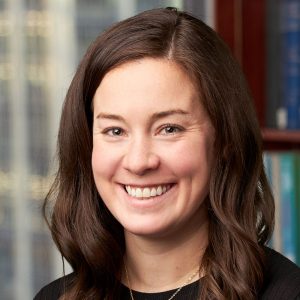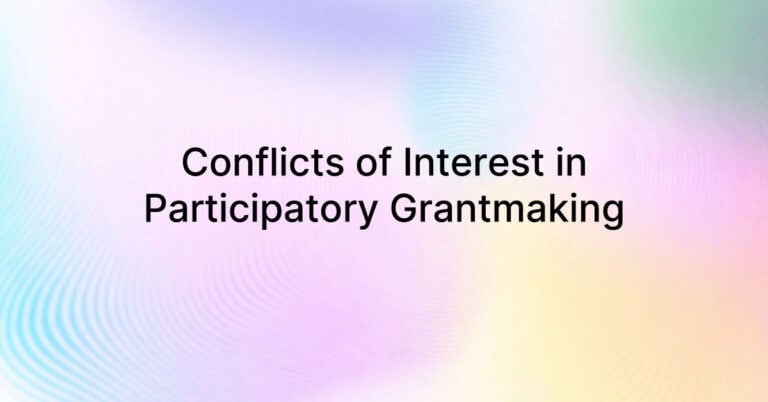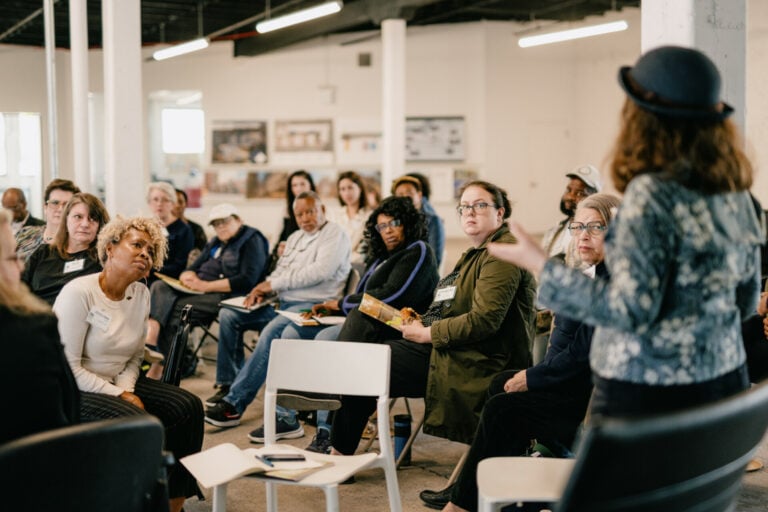“Can you see me?” asked Artis Romero Burney, a poet and community activist, at a participatory philanthropy meeting where he read his poem about the power of being seen, listened to, and understood.
In philanthropy, we’re trying to do just that. We are trying to identify organizations that best serve their communities. We are trying to practice deep listening. And we are trying to understand how to be better, more equitable, more community-centered partners.
In 2019, Fund for Shared Insight introduced its Participatory Climate Initiative as an opportunity for donors, like the MacArthur Foundation, to pool our resources to fund work at the intersection of participation, climate change, and policy advocacy. This meant contributing funds, then stepping back and trusting members of communities who are on the frontlines of climate change to be the deciders of how and to whom these resources should be distributed. The idea behind this initiative was that funders should cede some or all decision-making power to people who have first-hand experience with severe effects of climate change. In the case of one participant, that meant having watched their neighbors’ homes literally float away due to unprecedented flooding. The belief was that these folks would surface valuable perspectives, ideas, advocacy priorities, and proposed solutions likely much different than those that might come from more strategic or metric-driven philanthropy.
Folks with lived experience of the harsh realities of climate change served on the initiative’s Design Team, which created the guidelines for how and where funding would be disbursed. Then, others with deep knowledge of the chosen regions of Hawai’i, Alaska, and the U. S. Southeast (including Puerto Rico and the U.S. Virgin Islands) joined the participatory process as part of the Grantmaking Group. They made decisions by consensus about which organizations would receive support. Members of Shared Insight’s Advocacy/Policy Committee, of which I was a part along with other funders who had contributed resources, closely followed this participatory process. We were not asked to be experts or decision makers. Our sole objective was to listen and learn.
I joined participants from all phases of the initiative at a convening this past May in Guanica, Puerto Rico as a culmination of the work. My primary role, again, was to listen and learn. My biggest takeaway from our time together was hearing just how important and validating it was for the ultimate recipients of funding to feel seen and understood by participants of the Grantmaking Group. While the many thousands of dollars of general operating support their organizations received were meaningful and benefitted their communities, equally significant was the fact that they were recognized and celebrated by their peers who saw them not just as discrete projects and metrics, but as people and members of communities with experience and aspirations. Even more than that was the joy I heard grantees voice about the trust they felt was shared between them and the Grantmaking Group.
“They trusted us with this money.”
“They said we believe you.”
“They listened to us without telling us what to do.”
Trust is huge. Often, we find it easier to trust people we identify with, others in our community with whom we have shared cultural backgrounds, experiences, goals, or even similar professional roles. This is no different for those of us working in philanthropy. Peer-to-peer interactions are the number one way that funders seek out knowledge, often in conversation with our direct peers at similar institutions (e.g., program officers at private philanthropies talk to program officers at other private philanthropies). This is a big part of why funder collaboratives have picked up so much steam in the past several years; we’re keen to collaborate and learn with peers we trust.
The Participatory Climate Initiative took this a step further by expanding who saw each other as peers. Members of the Design Team, Grantmaking Group, and Advocacy/Policy Committee met over several calls and discussed everything from grantmaking practices to community resilience in the face of climate change and how that looks different, or sometimes the very same, in places like Southeast Alaska and Southeast Appalachia. Then, many of us had the opportunity to meet in person at gatherings Shared Insight hosted in Hawai’i and Puerto Rico that also included grantees, such as the poet Artis from the Cosmic Poetry Sanctuary. The meetings were intended to bring us together to continue to learn with one another and grow our understanding of the impacts of climate change, community-led strategies and responses, and participatory philanthropy.
At the Puerto Rico meeting I attended, we discussed island communities and climate change, an issue that created meaningful connections among participants from the U.S. Virgins Islands, Puerto Rico, and Hawai’i. Personally, I appreciated our deep dives — both through formal presentations and informal discussions — into power and philanthropy, examining who gets to make decisions and why. As a program officer who is often in community with peers in the donor space, it was an invaluable opportunity to participate in and witness honest conversations with people representing communities we seek to serve.
At the meeting, we also revisited Shared Insight’s new Participatory Philanthropy Toolkit, taking time together to ensure that more voices from the Design Team, Grantmaking Group, and grantees were included.
Over the initiative’s three years, I had the opportunity to watch a process unfold with trust as a guiding value and ultimate outcome. To listen to a variety of perspectives with the goal of understanding the challenges of climate change at a local level and how funding could better respond to the need. To grow our network of peers and people we can reach out to for advice and support. And — as the poet Artis implores us to do — to see, hear, and understand each other and our aspirations more clearly and more wholly.

Video and edit by Edward Valibus
About the author:







